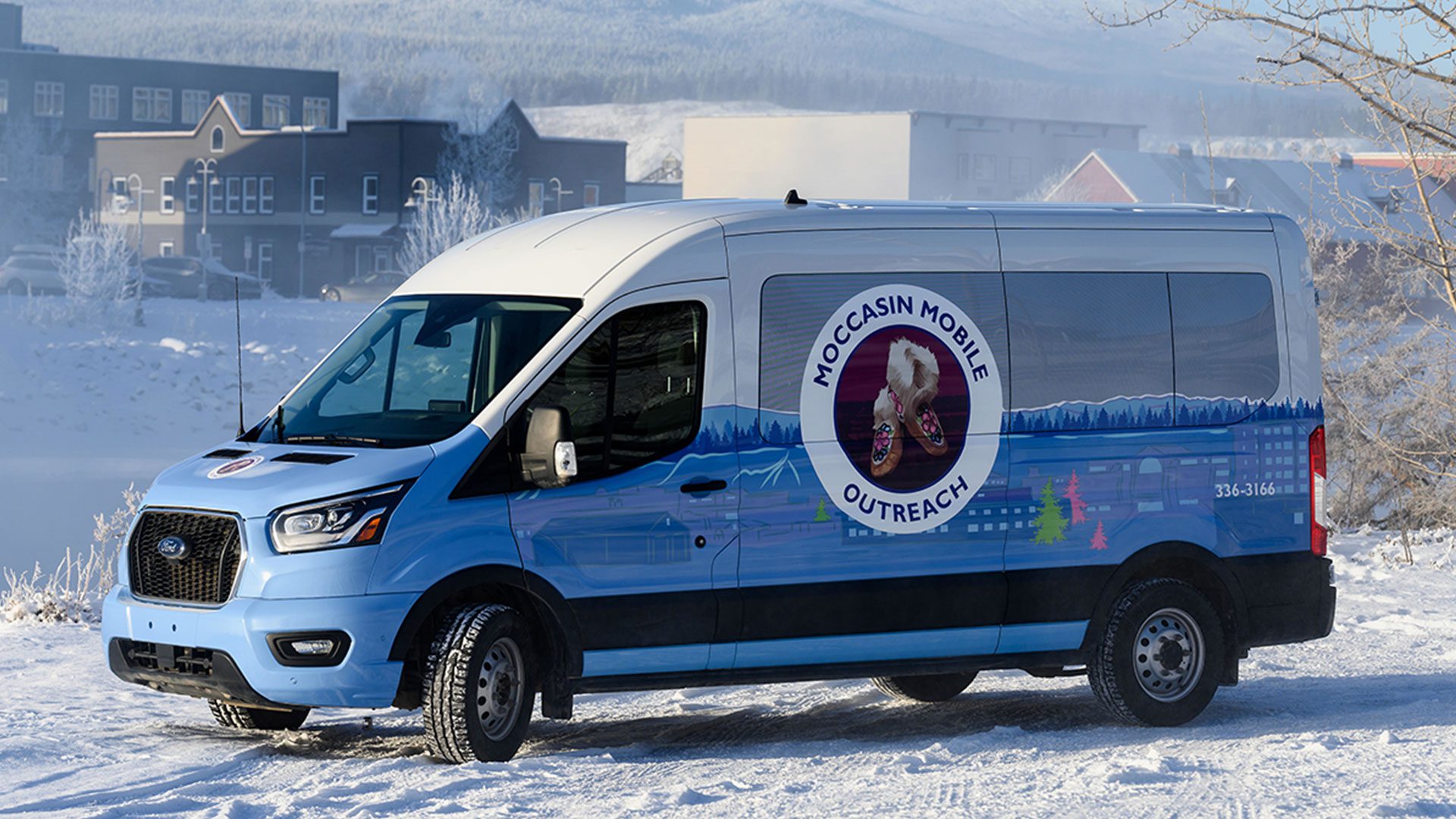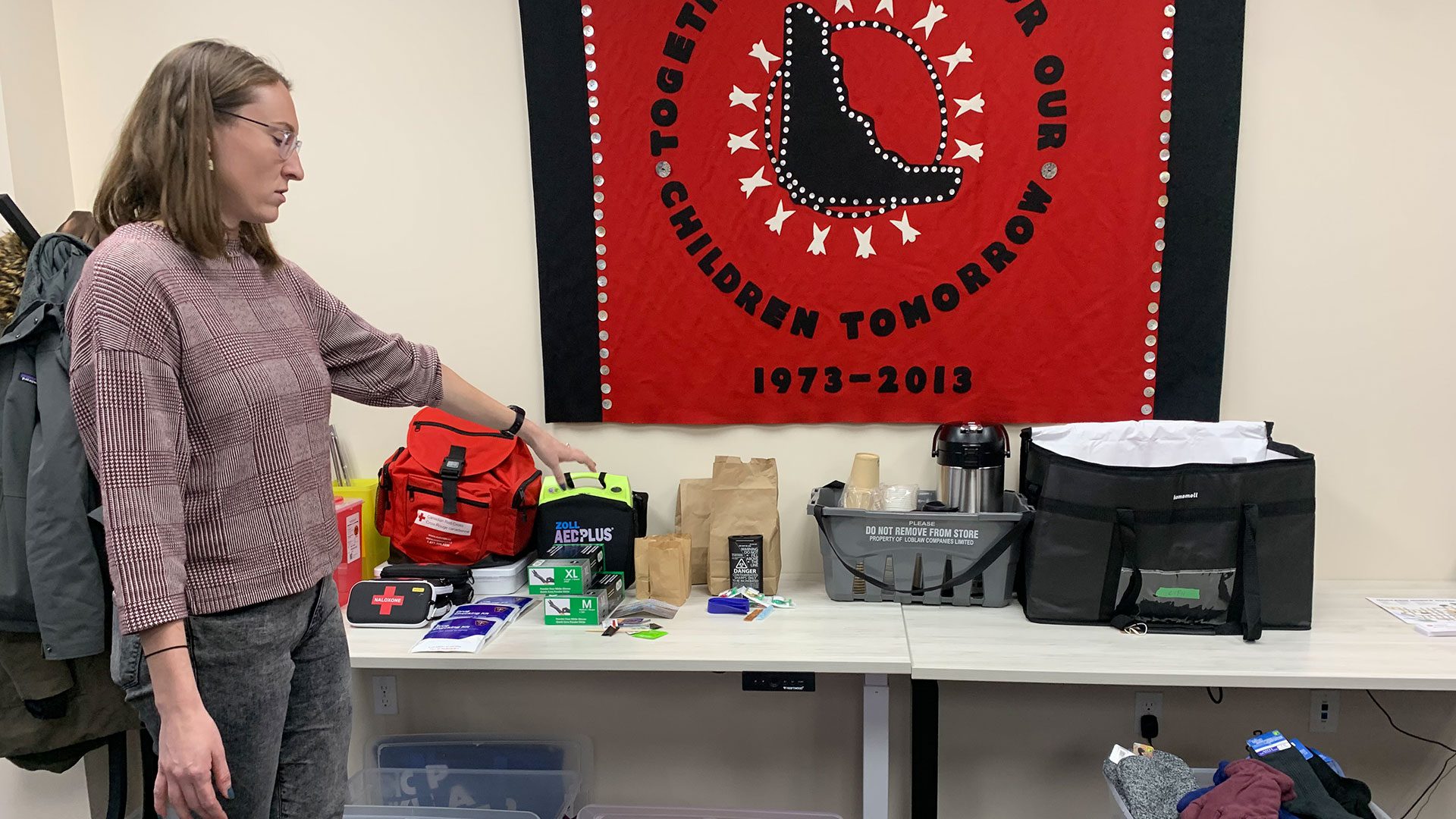A new pilot project will soon be hitting Whitehorse’s downtown core with the aim of helping vulnerable Indigenous people.
On Feb. 1, the Council of Yukon First Nations (CYFN) will formally launch Moccasin Mobile Outreach. The mobile service is aimed at providing culturally relevant supports to street involved people as well as enhancing safety in downtown Whitehorse.
“We know right now that Yukon First Nations and Indigenous people are overrepresented in the homeless population,” CYFN executive director Shadelle Chambers told reporters on Jan. 29.
“Our service is really meant to ensure that people are not dying on the street freezing and or being harmed.”
Yukon government is investing $300,000 as part of its downtown safety action plan. The plan was released following complaints from downtown businesses and residents that people staying at the Whitehorse emergency shelter are causing safety concerns and disturbances.
The new service will operate Thursdays to Saturdays between 8 p.m. to 2 a.m. and follow a designated route with 14 key locations, such as parks, bars, social housing complexes and the Whitehorse emergency shelter. Items like harm reduction supplies, personal care items, clothing and food will be provided to those in need.
Chambers said staff will also conduct foot patrols in areas that aren’t visible from roadways, such as behind bushes and alleys.
She emphasized the service will focus on meeting people where they’re at, which is why all outreach staff will have First Nations ancestry.
“I think it’s really important that vulnerable populations see themselves reflected in the service and understand the historical trauma and the realities faced by Yukon First Nations,” she said.

Outreach staff will be trained in things like naloxone and first-aid and can help connect clients to other services, such as housing support, the RCMP or emergency medical services (EMS).
“Many of our people do not feel safe phoning the RCMP at times due to legacy and historical issues. This is really an opportunity for us to provide those supports until the EMS or until RCMP arrive,” Chambers said.
She noted the service will differ from an outreach van operated by BloodTies, a Whitehorse-based harm reduction organization, which CYFN has been working in collaboration with.
“BloodTies runs a great program and we’ve seen the community access that program. Theirs is very clinically driven. There’s a nurse. There’s drug testing, there’s blood testing. STI testing. Ours will not be duplicating that service. Ours is more community grassroots,” she said.
Krista Mooney, CYFN’s justice manager, said the organization received support from Winnipeg’s Bear Clan Patrol, a security group that helps Indigenous people stay safe in inner city neighbourhoods, while designing its own program.
She said the group will be visiting Whitehorse next month.
“They’ll be doing some shifts on the van when they visit, and really just learning from them. They’re obviously a very well-established organization,” she said.

CYFN is currently looking to hire auxiliary on-call outreach workers.
Funding will take the pilot project through until the end of March, though CYFN hopes to offer it for the foreseeable future if there’s a need.
According to a point-in-time count led by SAH last April, 197 people in Whitehorse were experiencing homelessness, of which 90 per cent were Indigenous.









